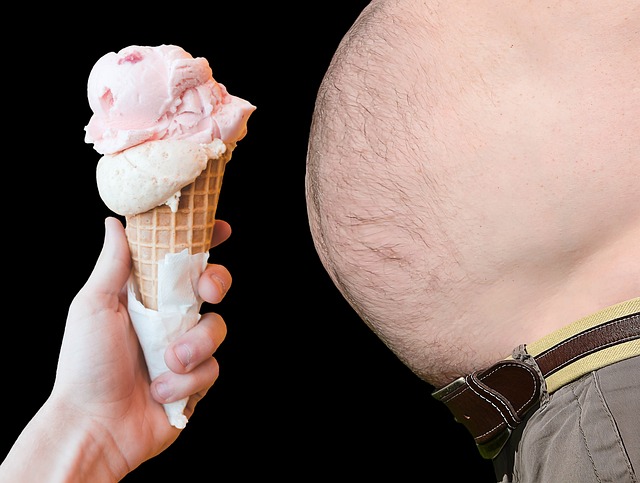How can I tell if I have visceral fat? Visceral fat also known as abdominal fat, or belly fat, isn’t just unsightly.
Visceral fat is dangerous because it’s stored in different parts of the body, and it can cause serious, long-term health issues. Here’s how to know if you have too much visceral fat.
How Can I Tell If I Have Visceral Fat
The first sign that you’ve developed visceral fat is a larger waist circumference. You may find that your pants feel tighter or that you need to tighten your belt a bit more.
Measure your waist with a cloth tape and measure at your navel. If your waist measurement is greater than 40 inches for men and greater than 35 inches for women, you’re at intermediate risk for developing visceral fat.
A man’s waist size is between 37.1 inches and 39 inches, and a woman’s is between 31.6 inches and 34 inches.
RELATED: 16 Nutrition Mistakes That Are Making Us Fat
Abdominal fat increases your risk for heart attack and stroke.
1. Waist-to-Hip Ratio
Another way to determine if you have visceral fat is to measure your waist-to-hip ratio. With your belly button at your navel and your hips at the widest point, take your waist and divide it by your hip.
According to NCBI, men have an increased risk of heart attack or stroke when their waist-to-hip ratio is greater than 0.95, and women have an increased risk over 0.85.
Where Visceral Fat Lies
Subcutaneous fat is the type of fat that can be touched or felt underneath the skin. visceral fat is the kind of fat that lies deep inside the belly, beneath the abdominal muscles.
2. Why Visceral Fat Is Dangerous
Visceral fat is considered metabolically active, producing hormones and inflammatory chemicals that increase the risk of coronary heart disease (heart disease), type 2 diabetes (type 2 diabetes), and insulin resistance (insulin resistance).
RELATED: Male Visceral Fat Surgery
Because visceral fat is located near the liver and pancreatic system, it is thought to leak free fatty acids, inflammatory cytokines, and other substances directly into these organs, leading to an increase in “bad” cholesterol, a decrease in “good” cholesterol, an inability of the body to break fat down, and even contribute to insulin resistance.
3. How Do I Get Rid of Visceral Fat?
Weight loss, exercise, and dieting are the most effective methods of reducing visceral fat. According to research, weight loss alone may reduce visceral fat by as much as 30% if you lose 10% of your body weight.
Eliminate sugary drinks such as sodas and sugary snacks. Instead, opt for more fruits and veggies, leaner proteins, and whole grains.
4. Exercise and Dieting Help You Lose Visceral Fat
It looks like the best way to get your weight under control and fight visceral fat is to stay active. Aim for moderate-intensity exercise for at least 30 minutes a day (and maybe up to 60 minutes) to help you lose weight and reduce visceral fat. Weight training and spot exercises like sit-ups can tighten your abs, but they won’t get rid of visceral fat.
RELATED: Can Vitamin D Deficiency Cause Fatigue
Eating complex carbs like fruits, veggies, whole grains, and lean protein instead of simple carbs like white bread, pasta, and sugar-filled drinks can also help.
Scientists are working on drug treatments to target abdominal fat, but for now, the best way to fight it is lifestyle, especially exercise.
5. Also, get enough sleep
Not getting enough sleep can lead to visceral fat. A large prospective study published in 2013 found that adults without obesity were 40% more likely to develop visceral fat if they slept less than 5 hours a night. The study authors hypothesized that this could be because sleep restriction increased cortisol levels.
Cortisol not only increases appetite but also encourages fat accumulation.
A Word From GetMe Treated
If you want to get rid of visceral fat, the best way to do it is by eating a diet that’s low in calories and exercising regularly.
RELATED: What Fruits Burn Fat At Night?
Doing exercises that target different muscles in your stomach can help tone it up. But it’s important to keep in mind that other things like sleep and stress can also affect your body composition and weight.
Other Helpful Blog Posts:
- How To Lose Belly Fat Overnight With Vaseline
- How To Gain Weight For A Thin Girl
- Slow Weight Loss: Sustainable and Effective
- Ladies, Let’s Lose Weight Together
- Weight Loss Recommendations Risk Factors
- Parenting: The Most Important Job On The Planet
- How To Reduce Inflammation During Menopause

